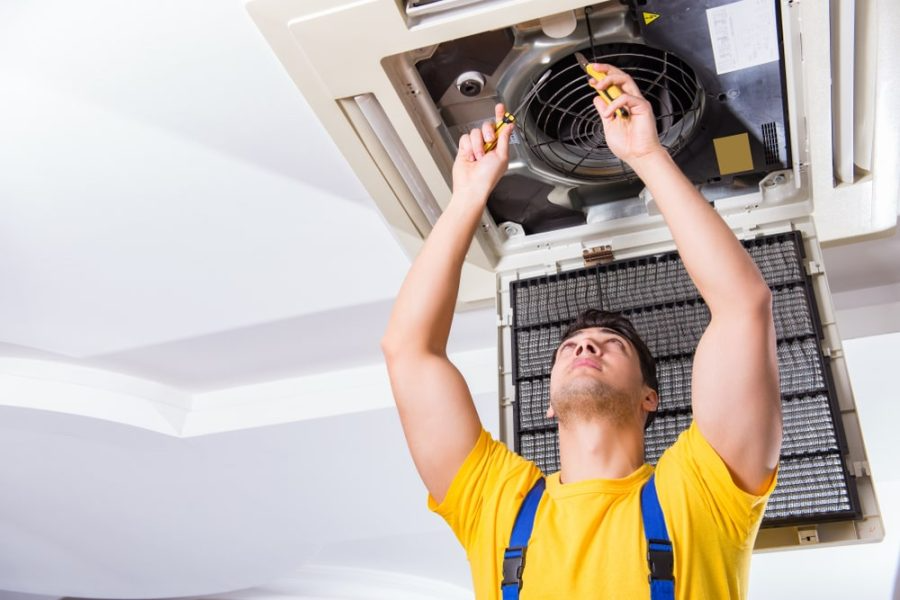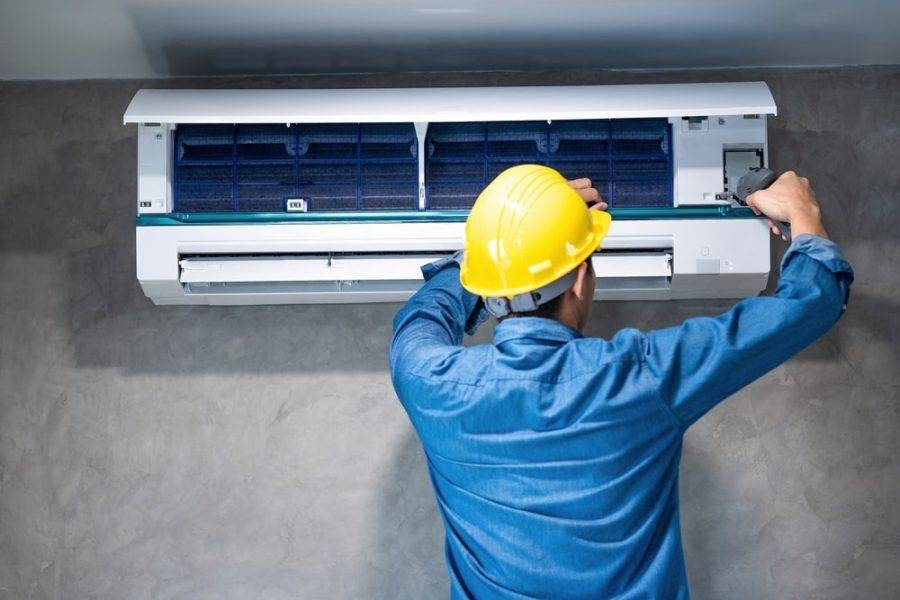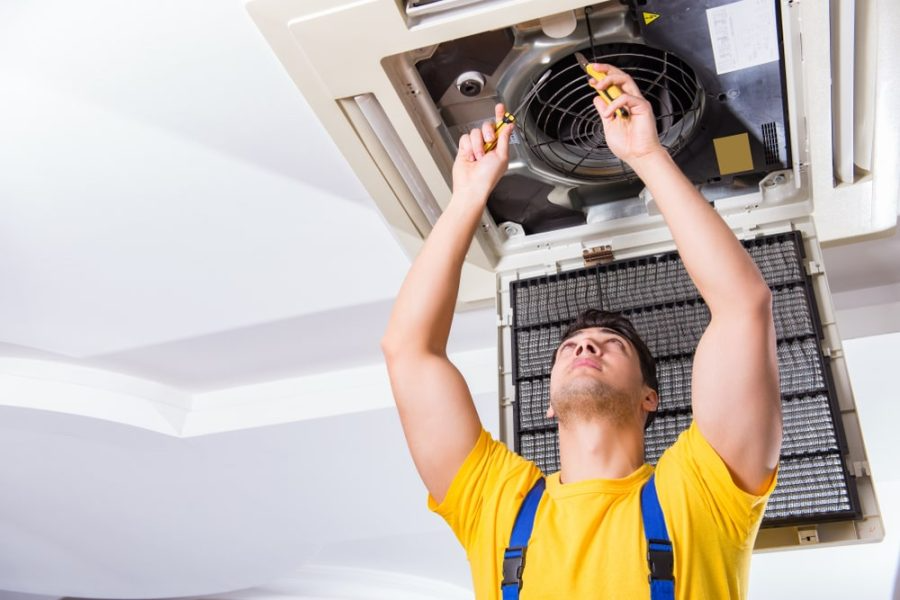AC repairs encompass a wide range of tasks, from minor adjustments to critical fixes. These can include replacing worn-out filters, repairing refrigerant leaks, or addressing electrical faults. While the type and extent of the repair vary, the primary goal is always to restore efficiency and maintain comfortable indoor temperatures.
The importance of timely repairs cannot be overstated. Neglecting even small issues can cause them to escalate into larger, more expensive problems. Routine servicing not only addresses these minor concerns but also extends the overall lifespan of the unit. A well-maintained air conditioning system can last over a decade, provided it receives regular attention. Without routine maintenance, the risk of sudden, costly breakdowns increases significantly.
What Are Emergency AC Repairs?
Emergency repairs are those that cannot wait. They occur when the system either stops working entirely or develops a fault so severe that delaying attention could cause health, safety, or financial issues. For example, a complete system breakdown on one of the hottest days of the year would require immediate repair to restore indoor comfort and prevent potential health risks, especially for vulnerable individuals such as children or the elderly.
Signs your AC may require emergency service include:
- The unit no longer produces cold air, even after filter checks.
- Strange noises such as grinding, buzzing, or screeching occur suddenly.
- A burning smell or electrical odour comes from the system.
- Water leaks or refrigerant spills appear around the unit.
- The system refuses to start, despite power supply being intact.
Delaying emergency repairs not only reduces comfort but can also damage the system further. Electrical faults, for instance, may pose a fire hazard if left unresolved. Immediate attention ensures safety and minimises the risk of higher repair costs later.
Common Causes of Emergency Repairs
Emergency repairs often stem from sudden, unexpected problems that interrupt the system’s performance. Common causes include:
- Sudden system breakdowns – Complete failure due to neglected maintenance or mechanical faults.
- Refrigerant leaks – Significant leaks causing loss of cooling capacity and potential health risks.
- Electrical faults – Tripped breakers, wiring failures, or faulty capacitors leading to system shutdown.
- Severe airflow issues – Blocked vents or malfunctioning fans preventing circulation of cool air.
- Extreme weather strain – Prolonged heatwaves pushing systems beyond their limit.
Each of these situations demands urgent attention to restore safe and reliable operation.

What Are Routine AC Repairs?
Routine repairs, in contrast, involve tasks that can be planned and scheduled. They are not emergencies but are essential to maintain efficiency and avoid unexpected breakdowns. Routine servicing also ensures compliance with manufacturer recommendations, which is especially important for keeping warranties valid.
Examples of routine repairs include replacing a clogged filter, unclogging drainage pipes, or tightening loose electrical connections. These repairs are often identified during regular maintenance checks, allowing homeowners and businesses to schedule them at convenient times.
Routine servicing is particularly effective in preventing emergencies. By addressing small problems before they worsen, the risk of sudden system failure is reduced significantly.
Common Causes of Routine Repairs
Routine repairs typically address gradual wear and tear rather than sudden failure. Some common causes include:
- Dirty filters – Reduced airflow due to accumulated dust and particles.
- Worn belts or parts – Components showing signs of use but not yet failed.
- Minor thermostat issues – Miscommunication between the thermostat and system.
- Drainage blockages – Build-up of debris in condensate drains causing water back-up.
- Seasonal tune-ups – Adjustments before peak summer or winter usage to maintain efficiency.
By taking care of these issues regularly, the system is kept in optimal condition, avoiding the stress of emergency interventions.
Comparing Emergency and Routine Repairs
Although both categories aim to keep an AC unit functioning, their urgency, cost, and consequences differ significantly.
Here is a simple comparison:
| Aspect | Emergency Repairs | Routine Repairs |
| Urgency | Immediate attention required | Can be scheduled at convenience |
| Costs | Often higher due to urgent labour and parts | Generally lower and predictable |
| Risks if Ignored | Safety hazards, full system breakdown, costly fixes | Reduced efficiency, gradual wear and tear |
| Frequency | Unpredictable, occurs suddenly | Regular, often seasonal or annual |
| Preventive Potential | Little to none once fault occurs | High, prevents emergencies and prolongs life |
This table highlights the practical differences and demonstrates why balancing both forms of maintenance is essential.
Role of Professional Support
Whether facing an emergency or planning a routine repair, professional expertise is invaluable. Attempting do-it-yourself solutions may seem convenient, but without technical knowledge, the risks of making the problem worse are high. Skilled engineers from an establishedair conditioning company London can diagnose issues accurately and provide safe, lasting solutions.
Professionals also have access to advanced tools, genuine parts, and brand-specific knowledge that homeowners typically lack. This ensures that both emergency and routine interventions are completed to a high standard, reducing the likelihood of recurring faults.
Why Choose Reliable Brands and Services
The reliability of your AC system depends not only on maintenance but also on the brand you choose. High-quality systems are designed to withstand intensive use and are less likely to experience sudden breakdowns.
For instance, Fujitsu Air Conditioning is well-regarded for producing durable and energy-efficient systems. By investing in such a trusted brand, homeowners and businesses significantly reduce the chances of frequent emergency repairs. Pairing reliable equipment with professional installation and servicing guarantees long-term performance and peace of mind.

Tips for Homeowners and Businesses
Deciding when to call for emergency support and when to schedule routine maintenance is not always straightforward. The following tips can help:
- Call immediately if: there are burning smells, loud grinding noises, refrigerant leaks, or the system has completely stopped cooling.
- Schedule repairs if: you notice reduced efficiency, higher energy bills, or minor airflow issues.
- Plan seasonal checks: before summer and winter to ensure the system can handle upcoming demand.
- Budget appropriately: allocate funds for both routine servicing and unexpected emergencies.
- Choose professional support: always contact qualified engineers to reduce the risk of repeat faults.
By following these steps, homeowners and businesses can keep their systems reliable year-round.
Conclusion
The difference between emergency and routine AC repairs lies mainly in urgency, cost, and potential consequences. Emergencies require immediate attention to restore safety and comfort, while routine repairs can be scheduled to maintain efficiency and prevent sudden breakdowns. Both are vital to the long-term performance of an air conditioning system.
For those seeking dependable service, Hamilton Air Conditioning Ltd provides expert solutions tailored to both urgent and scheduled needs. With a commitment to professional standards, reliable equipment, and customer satisfaction, the company ensures that every repair delivers lasting value. Whether you are dealing with an unexpected breakdown or planning seasonal maintenance, Hamilton Air Conditioning Ltd is ready to help safeguard your comfort and extend the life of your system.


